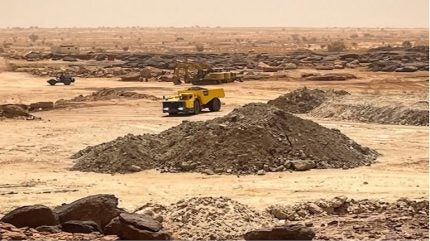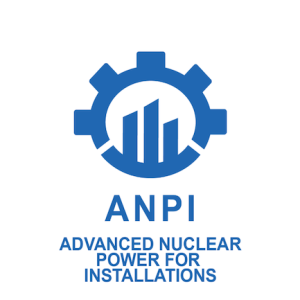
Canada’s GoviEx Uranium and its wholly-owned subsidiary GoviEx Niger Holdings Ltd have signed a letter of intent with the Republic of Niger, represented by the Minister of Mines agreeing to a structured roadmap that details a mutually acceptable plan to negotiate a resolution to the ongoing dispute regarding the Madaouela Uranium Project.
In January, GoviEx initiated proceedings under the Convention on the Settlement of Investment Disputes Between States & Nationals of Other States (the ICSID Convention) alleging that Niger had breached its legal obligations under a 2007 agreement with the company and under Nigerien law. The roadmap letter formalizes the recent discussions held during and subsequent to the 2025 Mining Indaba conference, in Cape Town, where both Parties engaged in constructive negotiations aimed at finding an amicable resolution.
This is the latest in a series of developments which have impacted uranium mining projects in Niger following the military takeover in 2023. French military troops were expelled from Niger in December 2023 after which relations with France rapidly deteriorated. In March, the government also cancelled an agreement with the USA, after which American troops were withdrawn.
In January 2024, Niger temporarily suspended the granting of new mining licences and also ordered an audit of the sector. In June, France’s Orano had its permit for the Imouraren project revoked. That project, containing one of the world’s largest reserves, had its permit awarded in 2009 but it was put on hold by the company pending favourable market conditions. On July 2, the Nigerien authorities withdrew GoviEx Uranium’s mining rights for the Madouela uranium project prompting Goviex to start proceedings under the ICSID Convention.
In December Orano said that the Nigerien authorities had taken operational control of the Somaïr uranium mining company in which it is the majority shareholder and operator – Orano holds 63.4% and Niger state company Sopamin 36.6%. Niger’s military government had disputed a decision by Orano in October to cease uranium production at Somaïr in face of increasingly difficult operating conditions and financial issues.
Orano initiated ICSID proceedings against Niger over the Imouraren permit in December 2024, and lodged a second arbitration procedure in January following its loss of operational control of Somaïr.
Niger is the world’s seventh largest producer of uranium and has the highest-grade ores on the African continent. It accounts for 4.7% of the world’s natural uranium production. In 2022, Niger provided more than a quarter of the uranium used in the European Union, the second biggest supplier after Kazakhstan, according to Euratom. France has depended on Niger for up to 15% of its uranium needs.
Goviex’s Madaouela Project is home to one of the world’s largest uranium resources, with 100 million pounds of U₃O₈ in measured and indicated mineral resources, along with an additional 20 million pounds in inferred resources. The Imouraren mine is the largest uranium deposit in Africa and world’s second-largest uranium deposit estimated to contain 179,000 tonnes of uranium deposits.
While the stand-off with Orano continues with continued tension between Niger and France, Goviex has now agreed to temporarily suspend the ongoing arbitration proceedings while discussions continue within the agreed framework. This suspension will remain in place until a resolution is reached or until it is determined that no settlement is possible.
At the African Mining Indaba Conference Goviex held several important meetings with Niger’s Mines Minister Abarchi. In various meetings Abarchi stated that Niger welcomes and encourages investment by foreign mining companies specifically including those from Canada, the US and Australia.
Abarchi also emphasised Niger’s strong support for Canada’s Global Atomic and its Dasa Project, and confirmed that the government has no intention to nationalise the Dasa Project. Global Atomic, which is developing the high-grade uranium deposit 105km south of the established uranium mining town of Arlit, said it has been “engaged in contingency planning with parties interested in non-dilutive financing options at the operating level” from groups interested in buying uranium from the mine. Dasa is the highest-grade uranium deposit in Africa, surpassed only by grades found in Canada’s Athabasca Basin, and is scheduled to achieve commercial production in early 2026.
“The Government of Niger has confirmed its full support for the Dasa Project and recognises it’s a new mine that will benefit the Republic of Niger by creating new jobs and opportunities for local business and revitalise the northern region of the country,” Global Atomic President and CEO Stephen Roman said. “The Government has offered its encouragement in the development of Dasa and all support required to accelerate construction and the start of mining operations.”
In its latest company update, Global Atomic noted: “Since the inauguration of President Trump in the United States of America, the market reaction has been that debt funding for the Dasa Project is unlikely to come from the USA. However, these discussions continue as well as the advancement of the Joint Venture final documentation. …As a result of the many successful meetings at the Indaba Conference, new parties have indicated a willingness to participate in the final funding solution for Dasa. Management is confident that these initiatives will continue to progress, and we reiterate our belief that prior to the end of Q1, 2025, further clarity can be shared with the market.”






